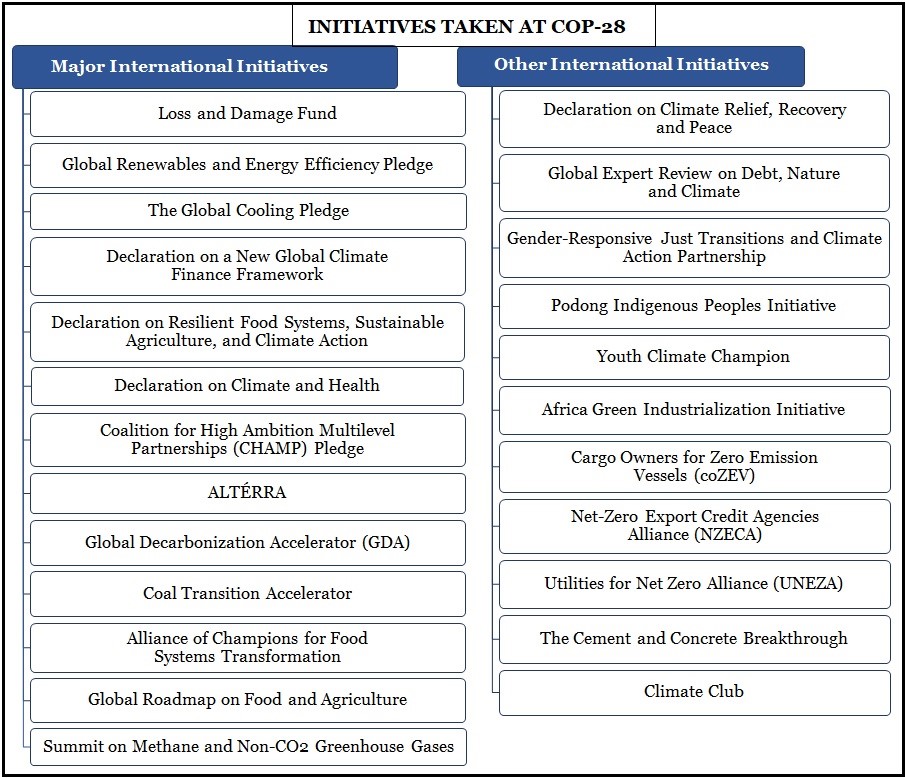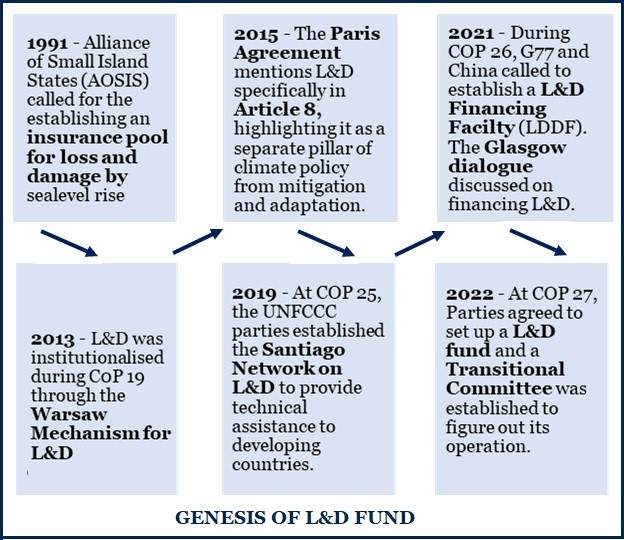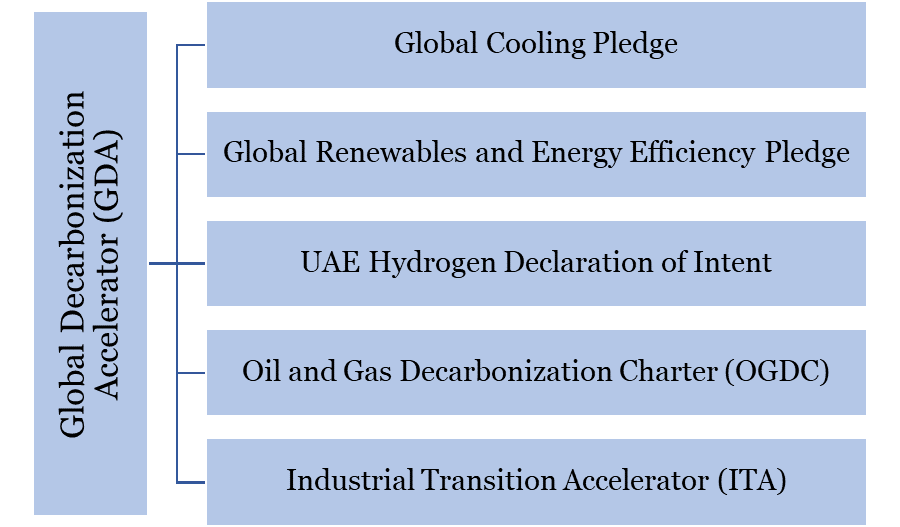The Conference of Parties (COP-28) has been recently concluded in Dubai, United Arab Emirates (UAE) with the adoption of UAE Consensus.
To know about Part 1, click here
What major international initiatives were launched during COP 28?

Loss and Damage (L&D) Fund

Global Stocktake
India is one among the only few countries that are on track to achieve its Nationally Determined Contributions (NDCs) to limit global warming to 1.5 degrees Celsius.
|
The Global Stocktake |
|
The GST text calls on Parties to follow 8 steps taking into account different pathways.
|
UAE Declaration on a New Global Climate Finance Framework
Declaration to Triple Nuclear Energy
Nuclear energy is the 2nd largest source of clean dispatchable baseload power.
Coalition for High Ambition Multilevel Partnerships (CHAMP) Pledge
ALTÉRRA
Global Decarbonization Accelerator (GDA)

Coal Transition Accelerator
Alliance of Champions for Food Systems Transformation (ACF)
Agriculture and livestock farming are the major sources of GHG emissions, contributing roughly a 10th of global carbon output directly.
Global Roadmap on Food and Agriculture
UNFCCC hosted its 1st ever Food, Agriculture and Water Day on December 10.
Summit on Methane and Non-CO2 Greenhouse Gases
Global Methane Pledge is an initiative from COP26 Glasgow, to cut methane emissions by at least 30% by 2030 from the 2020 levels.
Draft text on Global Goal on Adaptation
Emirates Framework for Global Climate Resilience
Just Transition Work Programme
Mitigation Work Programme
|
Other Initiatives |
Key Features |
|
Declaration on Climate Relief, Recovery and Peace
|
|
|
Global Expert Review on Debt, Nature and Climate
|
|
|
Gender-Responsive Just Transitions and Climate Action Partnership |
|
|
Podong Indigenous Peoples Initiative |
|
|
Youth Climate Champion |
|
|
Africa Green Industrialization Initiative |
|
|
New members added to Cargo Owners for Zero Emission Vessels (coZEV) |
|
|
Net-Zero Export Credit Agencies Alliance (NZECA) |
|
|
Utilities for Net Zero Alliance (UNEZA)
|
|
|
The Buildings and Cement Breakthrough
|
|
|
Waste to Zero Coalition |
|
|
Charter on Finance for Managing Risk |
|
|
Global Education Solutions Accelerator |
|
|
Declaration on the common agenda for education and climate change |
|
|
Net Zero Mobilization Charter |
|
|
Climate Club |
|
To know about UNFCCC COP-28 Part-3, click here
To download full pdf, click here